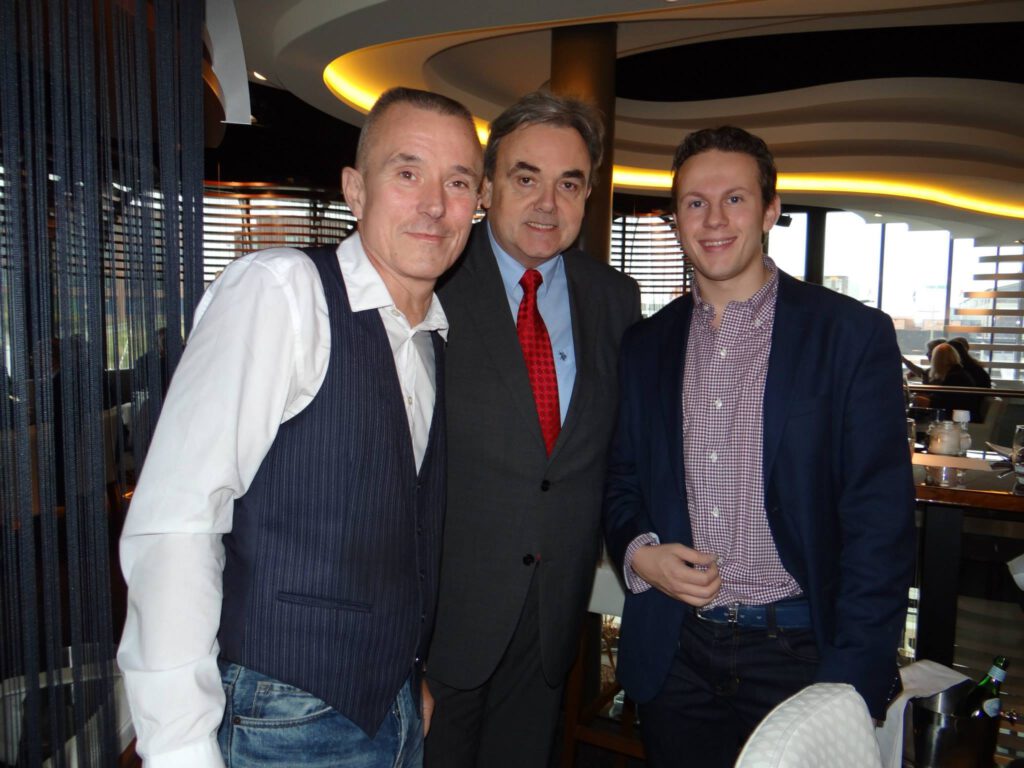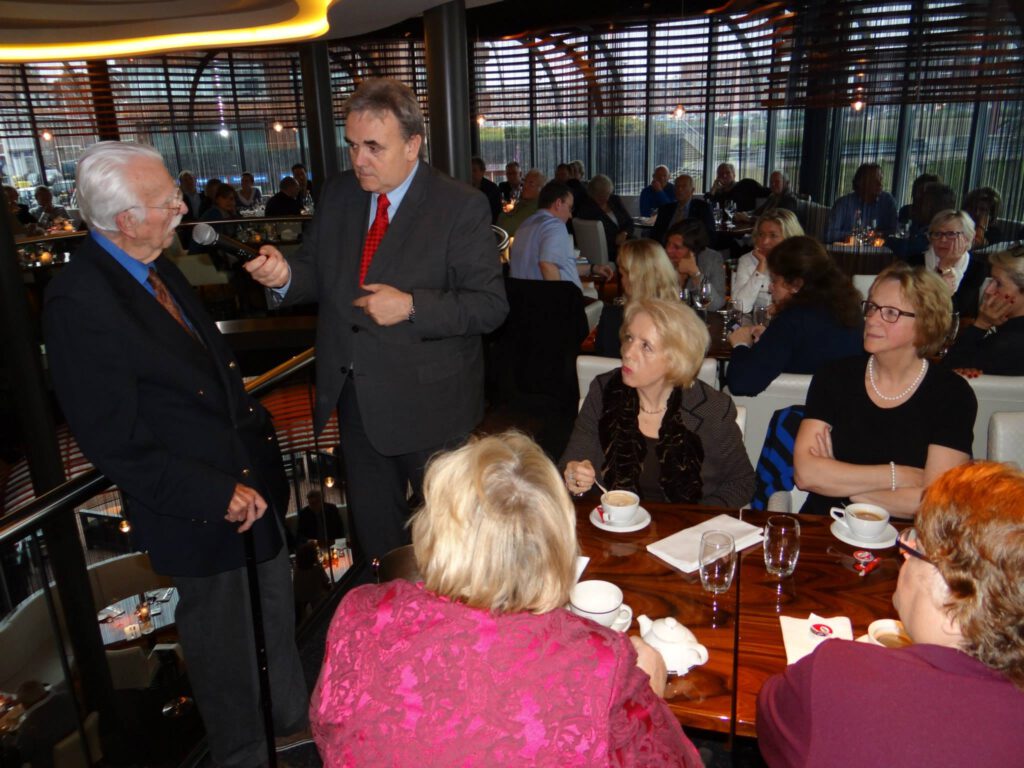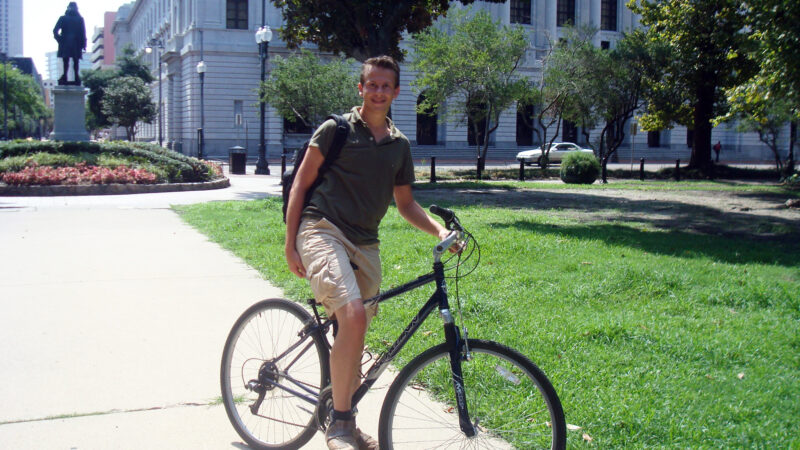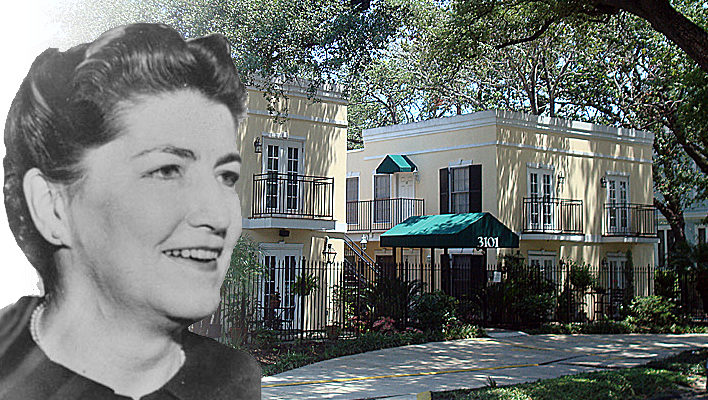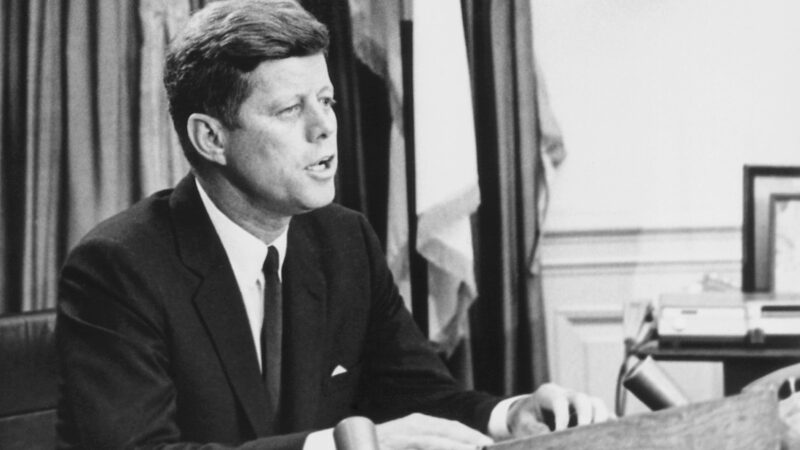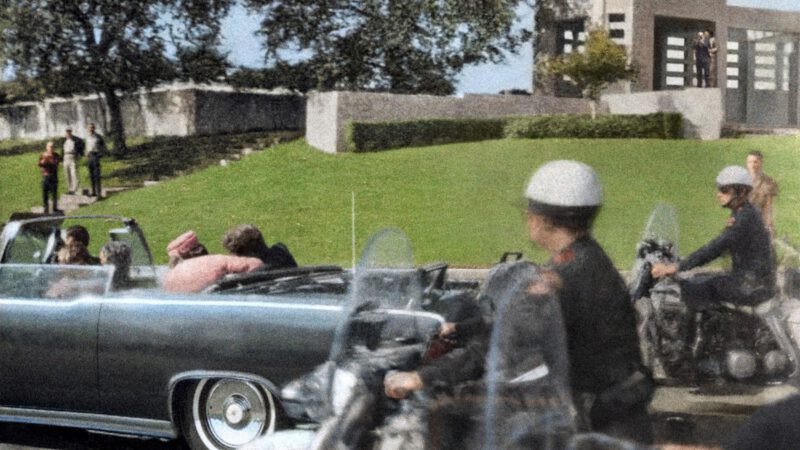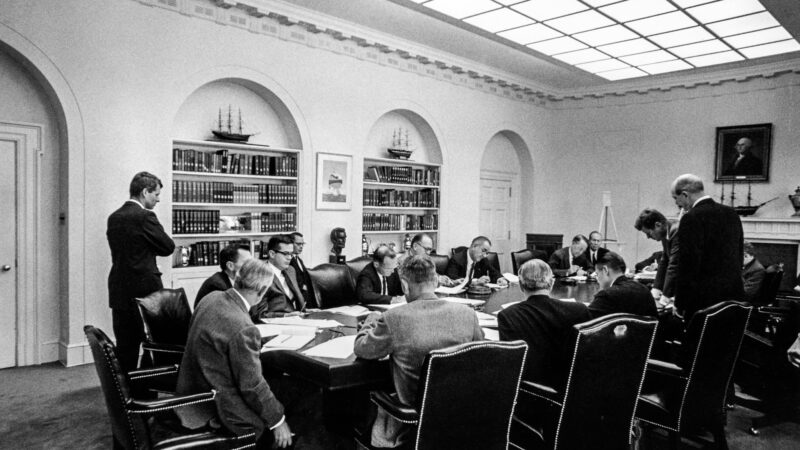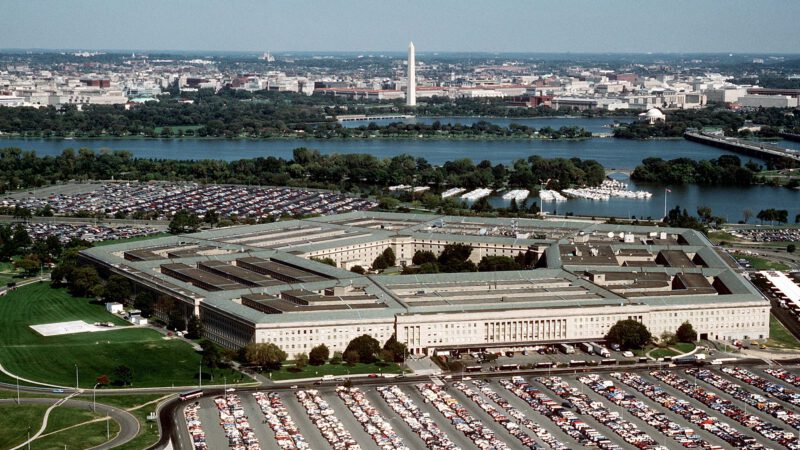Meeting Friso Endt; witness assassination Oswald
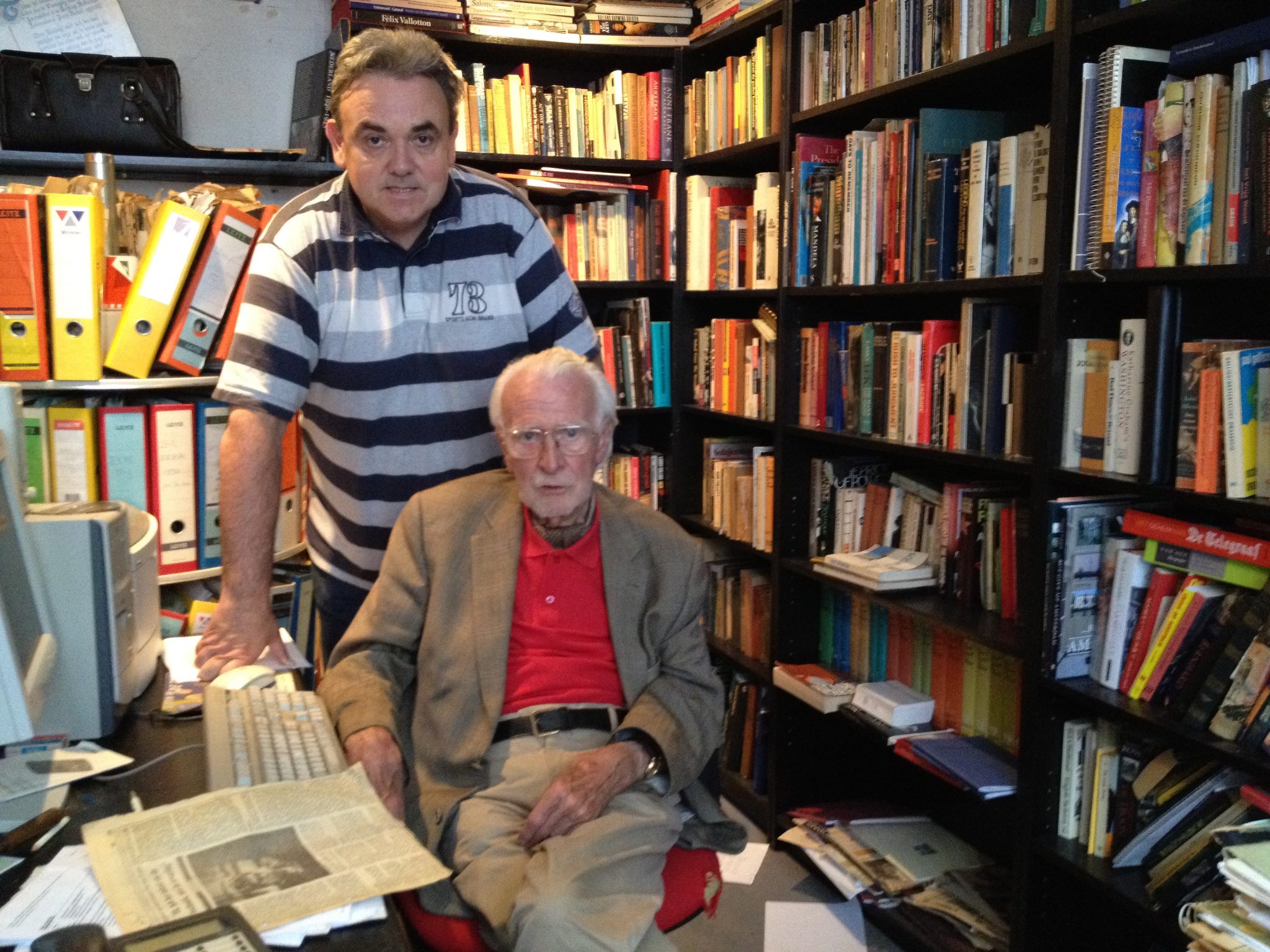
If I wanted to speak to another interesting person, Dutch journalist Willem Post (a well-known Dutch expert on America) told me at The Hague Press Center Nieuwspoort, I should approach Friso Endt. He was almost ninety-year-old in the summer of 2012 and the former journalist, born six years after John F. Kennedy, worked in his long career for publications such as Het Parool and NRC. He was said to have had a remarkable week after Kennedy’s assassination.
Endt invited me, and on the warmest day of the year, August 18, 2012. I spoke with him in his residence in the center of The Hague. Willem Post came too, to see the impressive office of the man whose life traversed numerous historical events in the twentieth century. Indeed, his story is remarkable. In one week, he met Jack Ruby, was a live witness to Oswald’s murder, and spoke with Martin Luther King, Prince Bernhard, and his eldest daughter Princess Beatrix. Endt’s experiences began shortly after Kennedy’s assassination.
“I was quickly at the Amsterdam office after the event in Dallas. As a correspondent for several American newspapers, I was the designated person to quickly take a plane. I was used to it; at that time, I spent more time in Cuba and the United States than in the Amsterdam office. Before I knew it, I was in a hotel room in Washington DC.”
Endt sat for hours in front of the television and then sent his first story to the Netherlands via phone. “They in Amsterdam constantly hungered for more information. Through director Robert Breen, my sadly deceased good friend, I arrived in Dallas halfway through Saturday. I ended up in the Hilton Hotel filled with international press. That evening, we had some free hours. Friends of Breen living in Dallas told me about the Carousel Club, a seedy nightclub. I went there with my English colleagues; it turned out to be a place owned by the as-yet-unknown Jack Ruby. I found it rather dirty. Scantily clad ladies tried to put on a show, but it wasn’t really crowded. Well, the Kennedy assassination had just happened; Americans had something else on their minds. We were given whisky, and Ruby told us unsolicited that he didn’t know Lee Harvey Oswald. Why he emphasized that is still unknown to me to this day.”
The next day, journalists all ran to the basement of the police station after a tip that Oswald would be transferred to a state prison from there. Endt: “There was uncontrolled chaos, absolutely no security. In the midst of all those people, I suddenly saw Jack Ruby walking. And then suddenly I saw Oswald, flanked by two local police detectives. Before we knew it, there was a dull thud, and the alleged murderer of the president was on the ground. There was a lot of shouting. Ruby was handcuffed, and not much later, we heard that Oswald had succumbed to his injuries in the hospital. The most extraordinary event in my long journalistic career had just taken place.”
As if his presence at that event were not sensational enough, Friso Endt had several special encounters in the United States in the following days. “I flew back to the capital and made a stopover in Atlanta, Georgia. There, in a small church, I spoke with Reverend Martin Luther King and his wife. According to him, it was not a racial matter – Oswald’s act had nothing to do with Kennedy’s efforts for the civil rights movement. It was only a short conversation; I had to consider my travel schedule.”
In the capital, Friso Endt attended the state funeral of the president the next day. “With other journalists, I positioned myself in the White House garden. From a distance, I saw little John Jr. salute the casket. Behind the bier, numerous government leaders and dignitaries followed. Among them, I recognized Prince Bernhard and Princess Beatrix. I knew Bernhard personally, since the Greet Hofmans affair in the fifties. Through an aide to the prince, I heard where the Royals were staying: at the Dutch embassy. In the middle of the funeral, a taxi took me to the right address. I handed over two film rolls for Het Parool to the aide and got the chance to chat briefly with Bernhard and Beatrix. The prince had no doubts about Kennedy’s murder: Oswald was the perpetrator, and there was no conspiracy. I suggested that America had conservative politicians and that there was turmoil within the intelligence service, but Bernhard shook his head resolutely. It had to be Oswald.”
“We in the media realized immediately at the time that we were witnessing a special event,” says Endt. “In my opinion, that Ruby was a real underworld figure, with many connections to the mafia. I think he was ultimately murdered, just like Oswald and Kennedy. He died of lung cancer, according to the official version, but I believe there was more to it. But what really happened on Dealey Plaza? I don’t know. I never really delved into the murder. But it’s clear that the mafia was angry with the president. He and Robert F. Kennedy had unleashed a witch hunt on organized crime, and such dark figures do not settle for an angry letter to the White House. I knew people who worked for the CIA, and they told me that there were still many incriminating documents under lock and key. Too bad that hasn’t been released long ago. In the end, Kennedy wasn’t a saint either. Wasn’t he in power thanks to those same criminals? What was he doing with all those ladies? I have to laugh when I hear people suggest that he was one of the greatest presidents in the history of the United States. If I just think of Franklin Roosevelt… Kennedy didn’t even come close!”
A fascinating career
And so, that morning in The Hague, we discussed an intriguing journalistic career together. First in Friso’s treasure trove, the overflowing library where I photographed him (see photo above), and later in the living room on an upper floor. From exciting wartime experiences and his work during the Watersnoodramp (North Sea flood disaster), to his love-hate relationship with Prince Bernhard and extraordinary encounters with people like Otto Frank and Fidel Castro. At one point, Friso’s somewhat younger partner intervened; a longer conversation would be too tiring for the elderly former journalist. I was kindly bid farewell. During the long drive home, I had a lot to reflect on. But above all, what lingered was the thought: what a fascinating week that must have been, there in November 1963… Read his own reflection on it here.
I spoke briefly with Friso Endt over a year later at a lunch in Scheveningen, organized by Willem Post, in honor of the 50th ‘anniversary’ of Kennedy’s assassination. Below are two photos from that gathering, I am on the first one with Willem Post and Hans Veldman on the left, who sadly passed away too early in 2016. Friso Endt is interviewed by Willem Post on the second photo.
Friso Endt died on October 7, 2016. He was 93 years old. Rest in peace.
